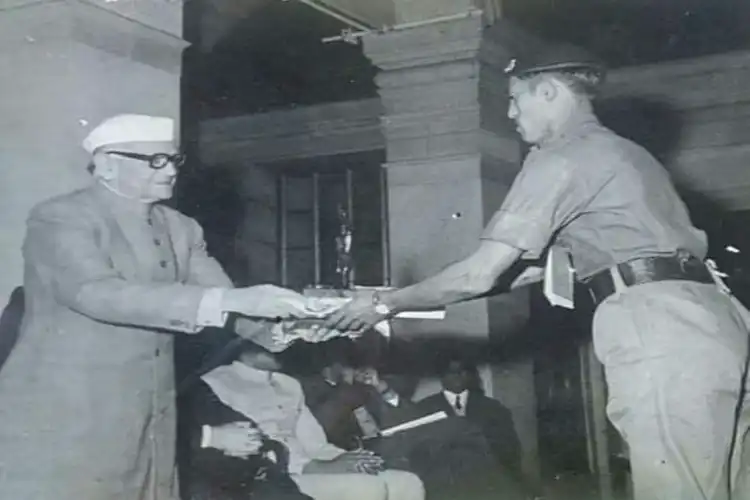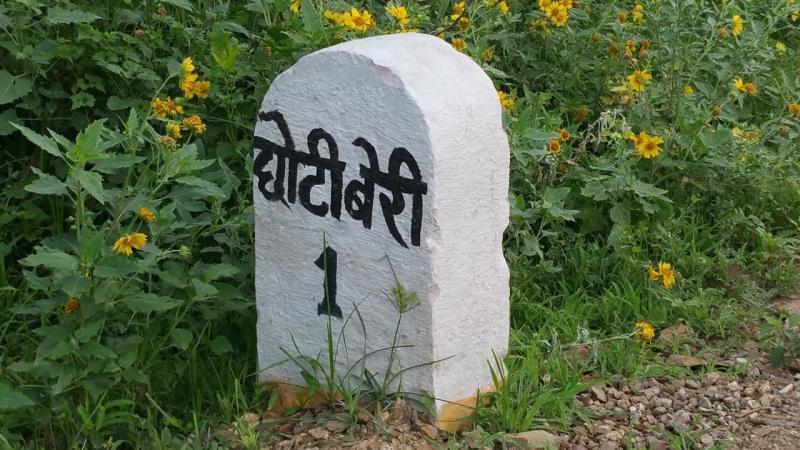
Shujaat Ali Quadri
Chhoti Beri of Nagaur in Rajasthan was dotted with shanties till a few years back. Today, the village scene has changed: big and palatial houses with modern amenities inside have sprung up. People no longer wear only coarse clothes; they are donning colorful clothes made of attractive fabric.
The village is home to some 400 Kayamkhani caste people; 95 percent of them Muslims, who have preserved their traditions.
Former Sarpanch Captain Kasim Khan said that no villager drinks alcohol nor do they accept interest on money as both are considered against the tenets of Islam.
The Kayamkhani caste has a history: Kayam Singh, the son of the Chauhan king of Daderwa, was converted to Islam during the time of Emperor Firoz Shah Tughlaq in Delhi. However, while he became a Muslim, the progeny of his brothers remained Hindus with Chauhan Rajput as their caste.
Even after becoming Muslims, the Rajput culture remained intact with the family of Kayam Singh, whose successors are called Kayamkhanis.
Beri's Kayamkhanis say that five generations ago, there was a tradition of social relations including marriages with (Hindu) Rajputs. Now the cultural ties with the Rajputs have been severed.

Milestone of Village Chooti Beri
The house of Kayamkhani in the village was called Kotdi. Like Rajputs, the celebrations of weddings will see an animal sacrifice.
A huge mosque on the west side of the village built at the cost of Rs 30 lakh has become the focal point of Chhoti Beri.
Many Kayamkhanis of the village has performed Hajj.Beri does have a fort as it came under the rulers of Fatehpur and Jhunjhunu. At the time of King Sawai Jaisingh of Jaipur, Shiv Singh Shekhawat of Sikar, Sadul Singh of Jhunjhunu abolished the Nawabi of Fatehpur, and Jhunjhunu and established their rule. In this way, the Nawabiyat of Kayamkhanis in Fatehpur, Jhunjhunu ended 300 years ago but the Beri faction is still intact.
Beri had a population of 1,223 in 1961. At that time these villagers were poor. Now this village is seeing progress and modern houses and relative affluence because of the remittances coming from the Arab countries.
The kayamkhani women still do not go out to work. They hand paint designs on fabric and it has become a household industry.
An NGO Sujangarh Ladnun Didwana Losal supplies the fabric to women for boondi design. Not a single woman in the village sits idle. The girls have started studying and going to the school that was set up with Rs 1000 donated by each Kayamkhani family. Women wear expensive salvar-kameez, ditching the traditional Rajputi dress of ghagra choli.
The Kayamkhanis are warrior people. The preferred job for most is joining the Indian Army. During the partition of India, most of the Kayamkhani families remained in India.
Each Kayamkhani family has someone in the Army. Captain Kasim Khan, Captain Faizu Khan, Captain Asghar Khan, Captain Bhanwaru Khan, Captain Taju Khan, Captain Asta Ali Khan, Captain Faiz Mohammad Khan and more than 200 soldiers are retired soldiers of the Indian army.
People remember the son of the soil Ibrahim Khan of the India Army who fought valiantly against Pakistan in the war and lost his life. His family was given a petrol pump in Moradabad, UP. Kalu Khan of Chhoti Beri was also honored by the government. Hussain Khan Captain has won the award in Moscow Olympics in Equestrian. Many people of Beri village in the 61st Cavalry have earned a name in horse riding.
Ayub Khan of Beri is pursuing medical education. Nek Mohammad here is a police inspector in Jodhpur. Aladdin Khan is a retired RI and Ghafoor Khan is a retired police station.
The community is running hostels in Jodhpur and Didwana for the student of the community studying there.
We are told that there are no quarrels and disputes among the villagers. Generally, people come across as polite and peace-loving persons.
Some families have settled in Jodhpur, Jaipur. Earlier the village used to have 500 camel carts which have been sold over a period.
(The Author is Chairman of MSO and a Community Leader)
